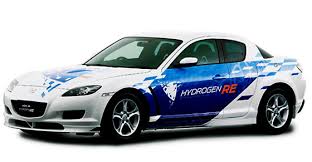Primero fueron Toyota y BMW, los que anunciaron su union, para el desarrollo de sistemas de pila de combustibles, para integrarlos en sus vehiculos, pues ahora se han unido los tres fabricantes restantes de vehiculos (Daimler, Ford y Renault-Nissan), para decir que en 2017, tendran desarrollado un vehiculo de pila de combustible de hidrogeno.
La verdad que esta competencia que se esta generando, vienen muy bien para la tecnologia, pero podrian darse un poquillo mas de vida y que estos proeyctos se hagan realidad un poco mas temprano, pero como bien se dice... mas vale tarde que nunca. 
Daimler, Ford and Renault-Nissan to Develop Common Fuel Cell System for 2017
28 Jan 2013
Daimler AG, the Ford Motor Company, and Nissan Motor Co., Ltd. have signed a three-way agreement for the joint development of a common fuel cell system for use in separate mass-market cars from 2017. The collaborative effort aims to reduce the investment costs associated with the engineering of fuel cell technology and each company will invest equally towards the project. This effort will be achieved through design commonality and economies of scale; engineering work will be undertaken by all three companies at different locations across the world. Large-scale collaborations such as this will help to define FCEV component specifications and standards, which will help to facilitate higher economies of scale.Daimler and Ford have been jointly developing fuel cell systems for the last five years under the Automotive Fuel Cell Cooperation (AFCC), which assimilated and continued the development of Ballard Power System’s automotive fuel cell activities.
Although Daimler had originally intended to launch its B-Class F-CELL in a limited capacity from 2014, it would appear that this schedule has been negated in favour of launching a more affordable vehicle based on the common system from 2017. It is also notable that the company’s more recent fuel cell concepts, the ‘F 800 Style F-CELL’ and the ‘F125!’, are both high-end saloon vehicles – a market where it is easier to hide the additional cost that an early fuel cell electric drivetrain may impose. Daimler remains active in the development and promotion of hydrogen infrastructure activities in Germany and despite a delay to commercialisation of a vehicle, it is clear that the company is still deeply committed to fuel cell technology.
“We are convinced that fuel cell vehicles will play a central role for zero-emission mobility in the future. Thanks to the high commitment of all three partners we can put fuel cell
e-mobility on a broader basis. This means with this cooperation we will make this technology available for many customers around the globe”, said Prof. Thomas Weber, Member of the Board of Management of Daimler AG, Group Research & Mercedes-Benz Cars Development.
Today’s announcement comes four days after an agreement between Toyota and BMW that, amongst other things, will see the companies jointly develop a new fuel cell vehicle platform by 2020.
No hay comentarios:
Publicar un comentario